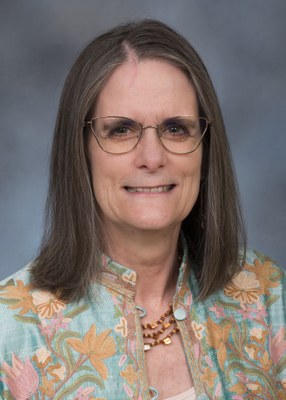Oncology Social Work Training and the Endowed Chair

Dr. Karlynn BrintzenhofeSzoc, Professor and the Dr. Renato LaRocca Endowed Chair in Oncology Social Work
While there have been tremendous advances in medical care in the U.S., we have fallen short in addressing the social factors that limit access to health care and produce poor outcomes for many who live in urban and rural areas.
More than 14.5 million Americans are living with a history of cancer (American Cancer Society, 2015). In Kentucky, the rates of cancer incidence and cancer deaths are particularly high. The Commonwealth leads the nation in rates of lung cancer and cancer-related deaths.
Cancer for patients and their families can produce significant mental health problems, including depression, anxiety, and symptoms of post-traumatic stress disorder (PTSD). The escalating costs of treatment and employment instability during treatment can lead to devastating financial consequences.
Cancer impacts family members and caregivers as emotional stress tends to spread throughout the patient’s support system. In fact, some research findings indicate that a family member’s emotional distress can be as severe as that of the patient.
Dr. BrintzenhofeSzoc focuses on the experience of being diagnosed with a chronic or life-limiting disease had on the BioPsychoSocialSpritualSexualCultural (BPSSSC) aspects of people. She is interested in how BPSSSC aspects of individuals are influenced by the experience of having cancer and undergoing treatment and how these BPSSSC aspects influence an individual’s cancer trajectory. Her research participants include those diagnosed with cancer, their family caregivers, and their healthcare providers.
A few of the outcomes of the interaction between the individuals BPSSSC and the cancer experience she has explored include psychosocial distress, quality of life, family functioning, the experience of traumatic stress symptomatology, and the use of alcohol during cancer treatment. Dr. BrintzenhofeSzoc has worked with a research team of the Cancer and Aging Research Group (CARG) advocacy group to conduct a systematic review of published articles from Phase III pharmaceutical cancer clinical trials to determine the reporting of evidence adverse effects of treatment specifically among older adults. This research team also explored the experiences and attitudes of healthcare providers of older adults with cancer after the first three months and currently after one year of caring during the Covid-19 pandemic.
Dr. BrintzenhofeSzoc is working with another research team in developing digital health approaches to providing technology-enhanced problem-solving education and technology-enhanced health education and literacy program for historically underserved populations. The first project is for people diagnosed with cancer and their family caregivers, while the second is for older adults from diverse backgrounds.
